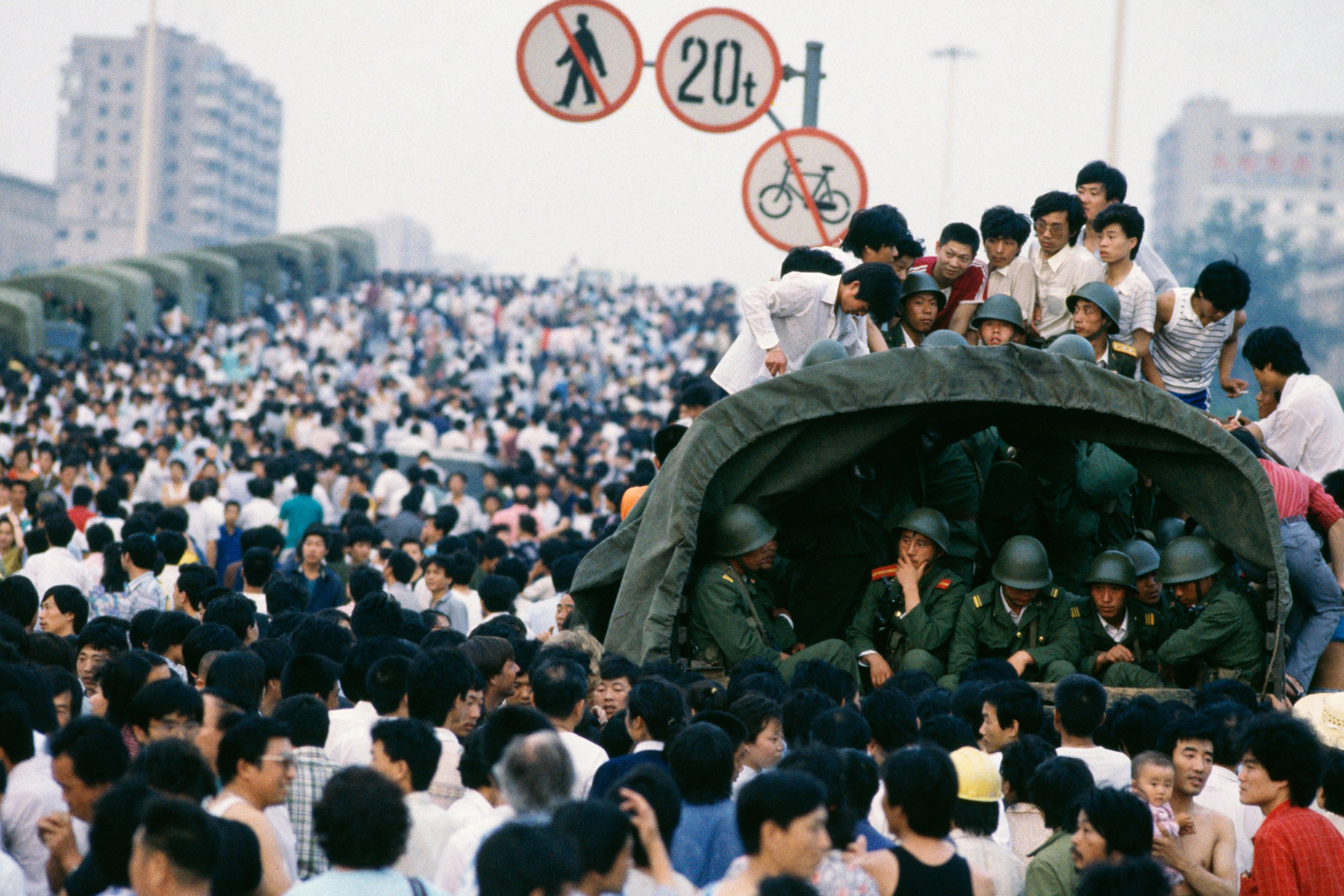Tiananmen Square: Massacring freedom
Jacques Langevin
© Jacques Langevin
From October 7 to November 3
30 years ago young people in China felt a wind of freedom. 30 years ago, during the night of 3-4 June 1989, Li Peng and Deng Xiaoping’s army repressed this wish for democracy in a bloodbath, ordering the massacre of thousands of pacifist demonstrators in Tiananmen Square.
The student movement had begun in April with the death of reformist leader Hu Yaobang. He had been highly popular with young people in China and his death triggered demonstrations and then the occupation of Tiananmen Square by young Chinese demanding less corruption and more democracy. The movement grew rapidly, the demonstrations began taking place every day and the workers joined in with the students’ demands. The students took advantage of Mikhail Gorbachev’s historic visit to disrupt government protocol and gain worldwide media attention. So the government called on young conscript soldiers drawn from the provinces and told them to bring an end to this revolutionary movement: however once the students explained their demands to them, soldiers and students began fraternising, contrary to the expectations of the communist ruling powers.
After this, the Chinese government wanted to end the movement, stationed regiments of battle-hardened troops in various points around the capital and ordered them to break up the protests. .
During the night of 3-4 June the army invaded Tiananmen Square. Tanks and troops destroyed the demonstrators’ camps. Armoured vehicles crushed anything in their way including human beings. The students’ attempts to build makeshift barricades and throw stones were met with machine gun fire. The People’s Army was firing on the people.
The number of victims is still unknown today. Less than 300 including soldiers according to China, but actually almost 10,000 people lost their lives. In addition to the victims of this bloody night many leaders, students and witnesses disappeared into government prisons.
In 2019, the events which took place 30 years ago in Tiananmen Square are still the greatest taboo in the history of modern China. The ruling powers have imposed a general amnesia on the entire country. Freedom of expression in public and on social media is still controlled, censored, forbidden and repressed.
—
Musée Mémorial de la Bataille de Normandie
2, Boulevard Fabien Ware
Open every day 10 am to 12.30 pm and 2pm to 6 pm
Free Admission

Musée Mémorial de la Bataille de Normandie
